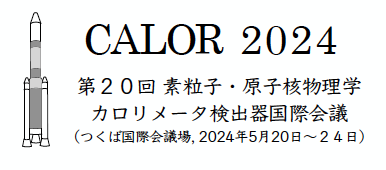Speaker
Description
Particle Identification (PID) plays a central role in associating the energy depositions in calorimeter cells with the type of primary particle in a particle flow oriented detector system. In this talk, we hope to present novel PID methods based on the Residual Network (ResNet) architecture, which enable the training of very deep networks, bypass the need to reconstruct feature variables, and ensure the generalization ability among various geometries of detectors, to classify electromagnetic showers and hadronic showers. Using Geant4 simulation samples with energy ranging from 5 GeV to 120 GeV, the efficacy of Residual Connections is validated and the performance of our model is compared with Boosted Decision Trees (BDT) and other pioneering Artificial Neural Network (ANN) approaches. In shower classification, we observe an improvement in background rejection over a wide range of high signal efficiency ($95\%$). These findings highlight the prospects of ANN with Residual Blocks for imaging detectors in the PID task of particle physics experiments and our methods have already been applied to solving beam contamination issues met during the beam test at CERN for the CEPC AHCAL prototype in 2022 and 2023.
